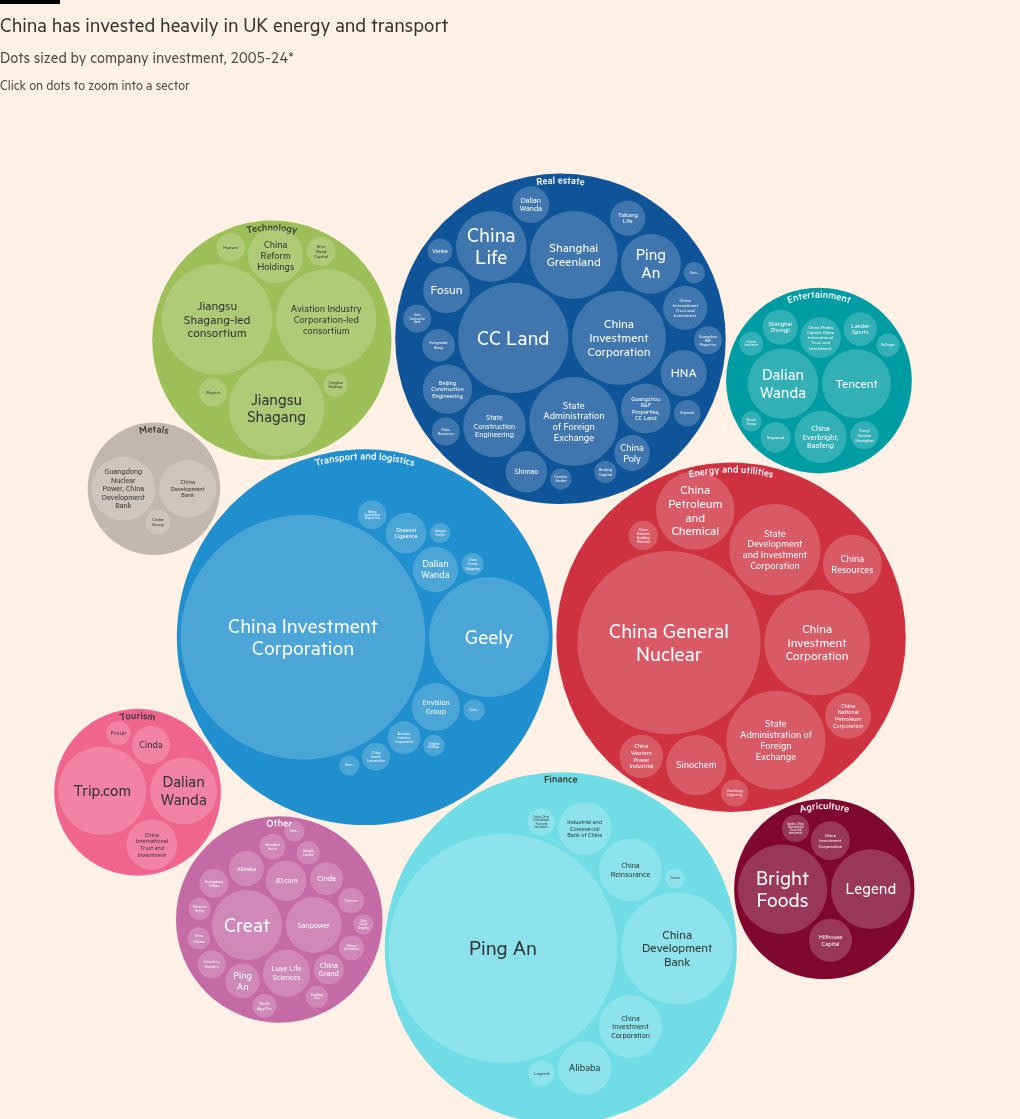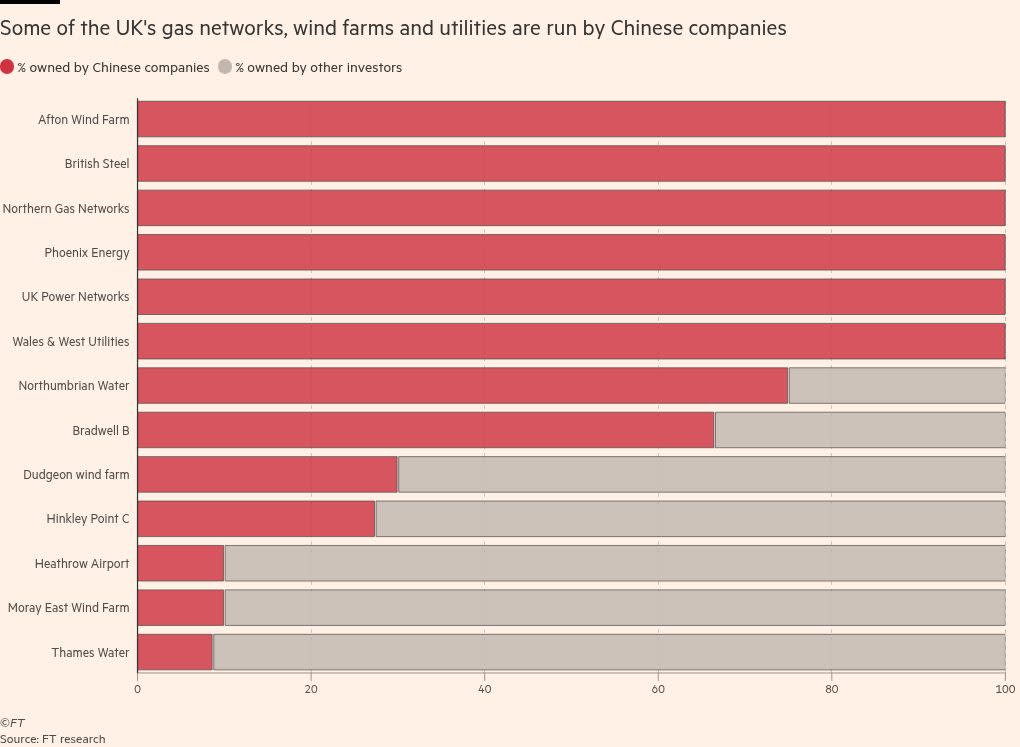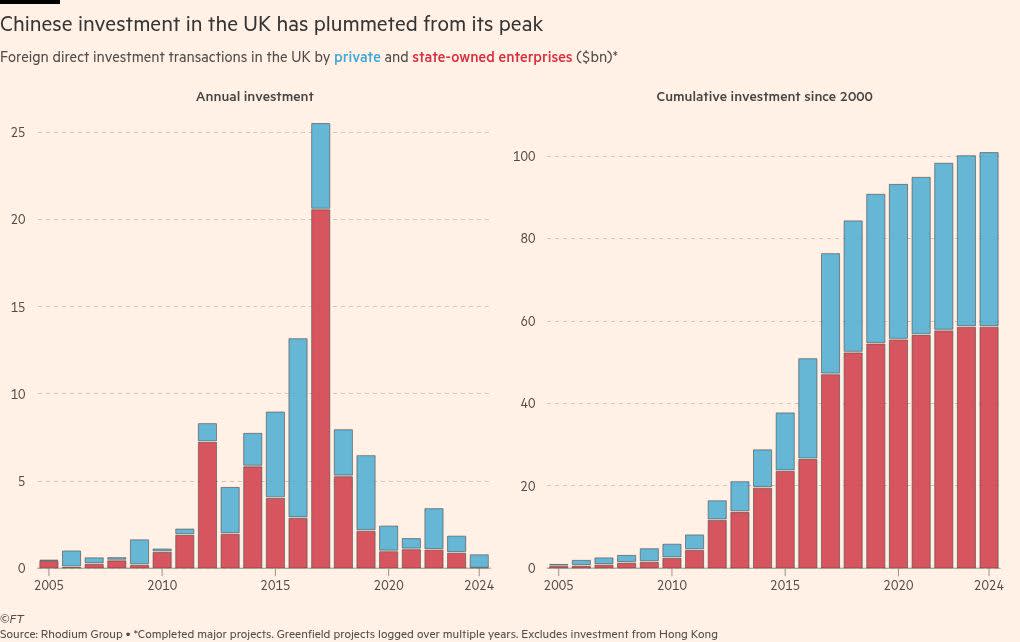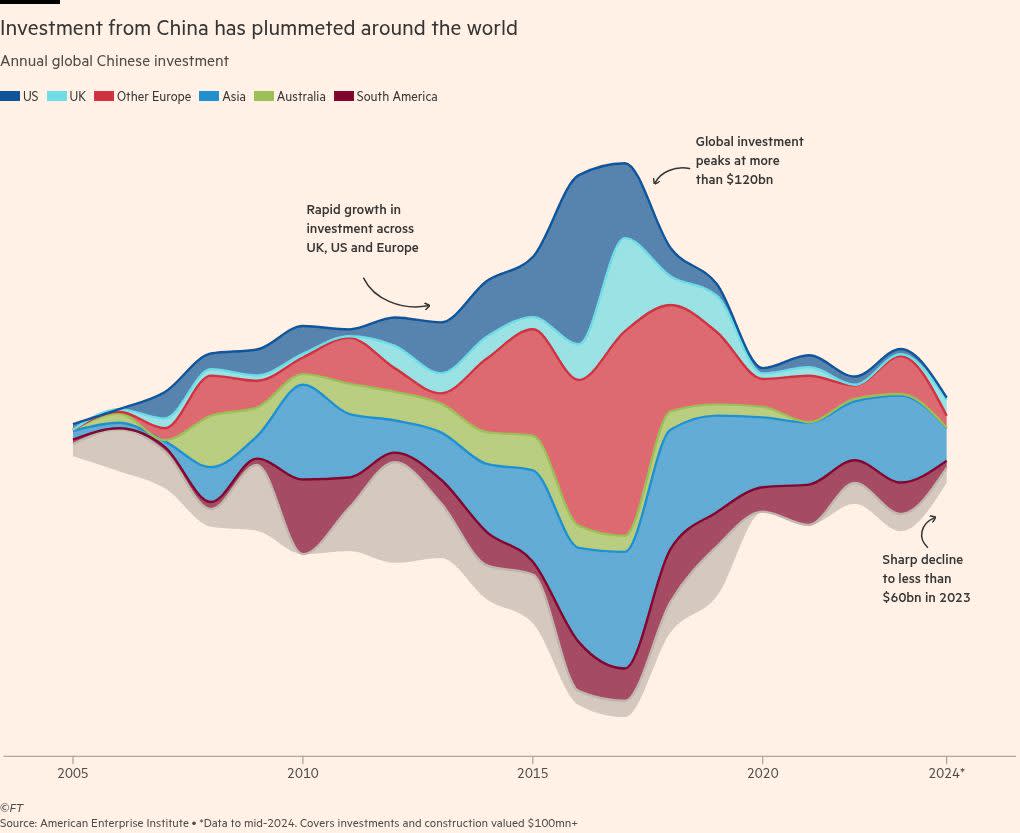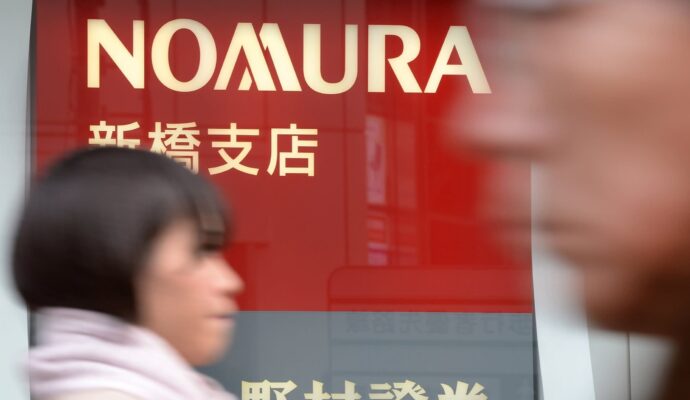Unlock the Editor’s Digest for free
Roula Khalaf, Editor of the FT, selects her favourite stories in this weekly newsletter.
The UK government’s decision to seize control of British Steel from Chinese owner Jingye has led to demands for greater scrutiny of China’s investments in the country.
But unpicking decades of spending by Beijing and Chinese businesses across the British economy would be difficult: more than $100bn of Chinese investment has flowed into the country since 2000, according to figures from the Rhodium Group, a research outfit.
Around a third of Chinese spending on major UK projects has been in the energy, technology and transport sectors, according to the American Enterprise Institute think-tank — fuelling questions about exposure in strategically important areas.
Senior figures in the Labour party have raised concerns about vital areas including nuclear, telecoms and transport where they say Chinese ownership could jeopardise Britain’s economic security and disrupt supply chains.
Energy alone accounts for almost a fifth of all major Chinese investments since 2005, reflecting a broad spectrum of projects from wind farms off the Scottish coast to gas networks in Wales and Northern Ireland.
Derek Scissors, senior fellow at AEI, said the “size and expertise” of state-owned enterprises made them attractive partners for large energy and transport projects, such as nuclear power plants.
“The somewhat frightening downside is a role for the Chinese state in important national infrastructure,” he added.
Leading state investors include China Investment Corporation — which owns 8.7 per cent of Thames Water and 10 per cent of Heathrow airport — and China General Nuclear (CGN), which holds a minority stake in the Hinkley Point C plant in Somerset.
CGN was also slated to work alongside French energy company EDF on a proposed new nuclear power station in Bradwell, Essex, but officials advised this week that the government will block its investment, amid mounting pressure to reduce Beijing’s influence.
While state-owned enterprises have concentrated investment in energy and infrastructure, private investors have focused on real estate and strategic manufacturing sectors such as semiconductors, steel and transport.
Geely, which owns Volvo Cars, acquired the black taxi-maker LEVC and also owns sports car brand Lotus, which both have UK factories.
Both state-owned and private companies have slashed funding in recent years, with Chinese FDI into major UK projects last year just 3 per cent of its 2017 peak.
Scissors said the decline reflected a “less welcoming” attitude and Beijing’s tightening of capital controls, with private investors also deterred by the poor performance of property assets.
“Chinese private investors sent a great deal of money out of the country in 2015-16 and the easiest way to do that was to buy property. Many of those purchases then fell in value,” he added.
The UK is not alone in seeing a sharp decline in Chinese funding, with AEI data showing investment in major projects declined 97 per cent in the US and 87 per cent in Europe between the mid-2010s peak and 2023.
Armand Meyer, a senior research analyst at the Rhodium Group, said “heightened scrutiny” from British regulators had helped to curtail investment in recent years.
But he added that the UK had been one of the top destinations for Chinese funding over the past two decades, with state-owned companies accounting for a “notably high share” of funding.
“The UK has historically attracted more infrastructure investment from China than most other OECD economies, owing to its comparatively open stance towards foreign ownership in strategic sectors,” he said.
“One of the key challenges for the UK and other OECD countries lies in the legacy of acquisitions completed before investment screening regimes were tightened.”
